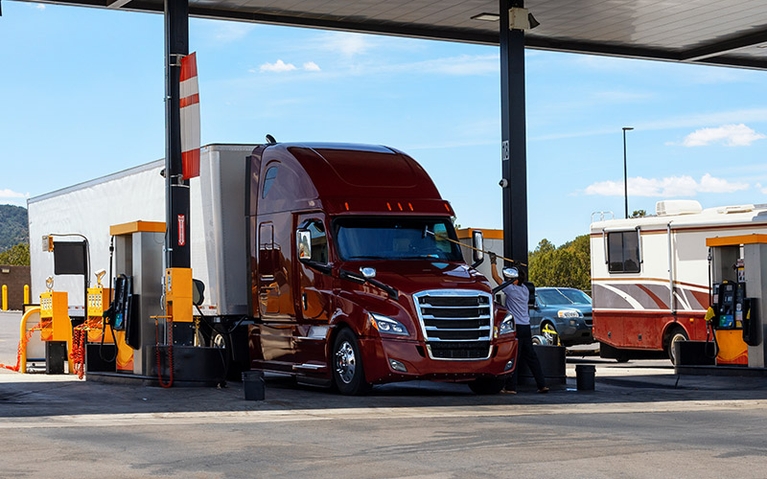What is fuel surcharge in trucking? What you need to know
August 30, 2023

Estimated reading time: 2 minutes
Fuel is typically the largest expense for owner-operators, which means fluctuating prices at the pump can significantly impact their business’ bottom line. However, fuel surcharges can relieve some of that unpredictability.
So, what is a fuel surcharge in trucking? Continue reading to find out the fuel surcharge definition and how it works for owner-operators.
What is the purpose of fuel surcharge?
Fuel surcharge is an extra fee motor carriers charge shippers. This charge helps balance the changing costs of fuel, ensuring the rate aligns with current market prices.
Shippers often pay the fuel surcharge on top of freight rates. However, some shippers choose to offer a higher line haul rate instead to avoid dealing with fuel surcharges.
How is fuel surcharge calculated?
Fuel surcharge can be calculated in several ways. One of the most common methods includes using these factors:
- The base fuel price in a shipping contract.
- The current cost of fuel.
- You can find updated diesel prices on the U.S. Energy Information Administration’s weekly report.
- The shippers’ standard truck MPG assumption.
Fuel surcharge formula
Using the three variables above, a fuel surcharge can be calculated by:
- Subtracting the base fuel price from the current cost of fuel.
- Dividing the difference by the standard MPG.
Following that formula, this is an example of what a fuel surcharge can look like:
- $4.00 - $1.25 = $2.75
- $2.75 / 6.5 mpg = 42 cents per mile.
If you haul a load 700 miles, for example, you will get about $296 to offset the increased price of fuel.
How does fuel surcharge work for owner-operators?
Owner-operators who do business with a motor carrier often do not have to calculate their fuel surcharge. Carriers may compensate by the mile or through a percent of revenue and provide a per mile fuel surcharge rate to owner-operators. Some carriers may also provide an all-in revenue in which the shippers’ fuel surcharge is already included in the rate the carrier is providing to the owner-operator.
Schneider is one of few carriers that offers both a Percent of Revenue program and an All-In Revenue program.
On the other hand, owner-operators who operate under their own authority typically need to calculate their own fuel surcharge and incorporate that fee into the freight they select or the contracts they negotiate.
Some carriers, like Schneider, also offer fuel discounts to owner-operators who do business with them. This discount, typically taken off of the retail price at the pump, can help offset high fuel costs in addition to a fuel surcharge.



